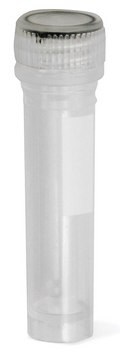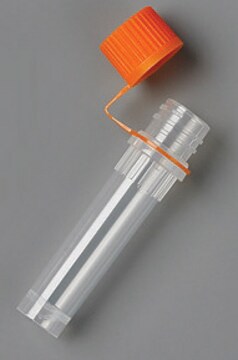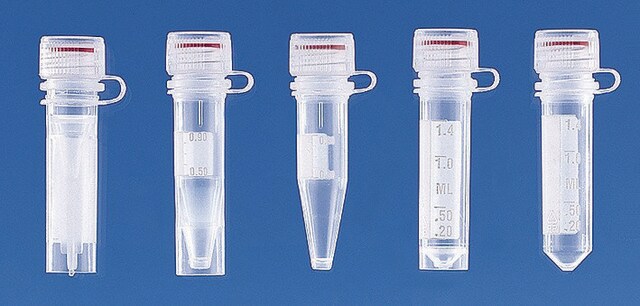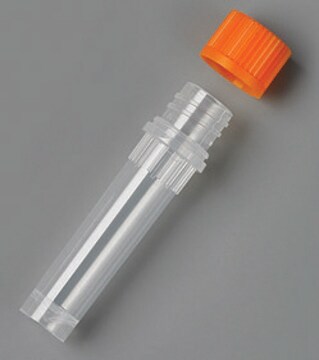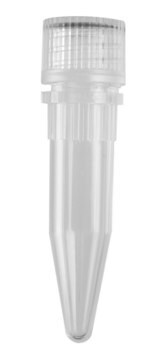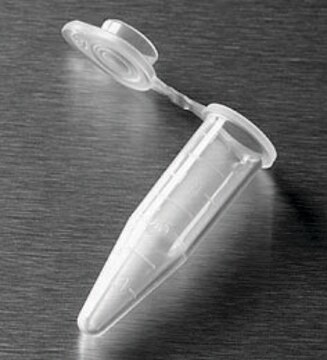CLS430909
Corning® microcentrifuge tubes with screw cap
1.5 mL microcentrifuge tube, polypropylene, w/ attached screw cap, w/ 0-ring, sterile, natural, 500/cs
Synonim(y):
centrifuge tubes, micrcentrifuge tubes, microfuge tubes, screw cap microcentrifuge tubes
About This Item
Polecane produkty
Materiały
conical bottom tube
natural polypropylene tube
screw top cap
opis
O-ring (black silicone, rubber O-ring in cap)
sterylność
sterile
Właściwości
self-standing: no conical bottom
opakowanie
pack of 50
case of 500
producent / nazwa handlowa
Corning 430909
Parametry
20000 × g max. RCF
śr. korka
12.7 mm
pojemność
1.5 mL
śr. zewn. probówki
10.7 mm
kolor
natural
dopasowywanie
cap (screw cap)
Szukasz podobnych produktów? Odwiedź Przewodnik dotyczący porównywania produktów
Opis ogólny
- 1.5 mL polypropylene microcentrifuge tubes feature screw caps that provide a tight secure seal
- Attached cap with silicone O-ring
- Withstands a maximum RCF of 20,000xg
- Sterile
- Maximum RCF is 20,000
- No marking spot
Informacje prawne
Wybierz jedną z najnowszych wersji:
Certyfikaty analizy (CoA)
Przepraszamy, ale COA dla tego produktu nie jest aktualnie dostępny online.
Proszę o kontakt, jeśli potrzebna jest pomoc Obsługa Klienta
Masz już ten produkt?
Dokumenty związane z niedawno zakupionymi produktami zostały zamieszczone w Bibliotece dokumentów.
Klienci oglądali również te produkty
Protokoły
Reverse transcription (RT) is the process of converting RNA to cDNA using a reverse transcriptase enzyme and dNTPs.
Hot Start dNTPs are modified with a thermolabile protecting group at the 3’ terminus. The presence of this modification blocks nucleotide incorporation by DNA polymerase until the nucleotide protecting group is removed during a heat activation step.
The most common application for qPCR is the measurement of a gene transcript or copy number quantity relative to one or more reference genes using probe detection.
Although quantitative PCR uses the same basic concept as traditional PCR, the reactions differ in that the amplicons are generally smaller and are detected indirectly using an additional dye or labeled probe or primer.
Nasz zespół naukowców ma doświadczenie we wszystkich obszarach badań, w tym w naukach przyrodniczych, materiałoznawstwie, syntezie chemicznej, chromatografii, analityce i wielu innych dziedzinach.
Skontaktuj się z zespołem ds. pomocy technicznej